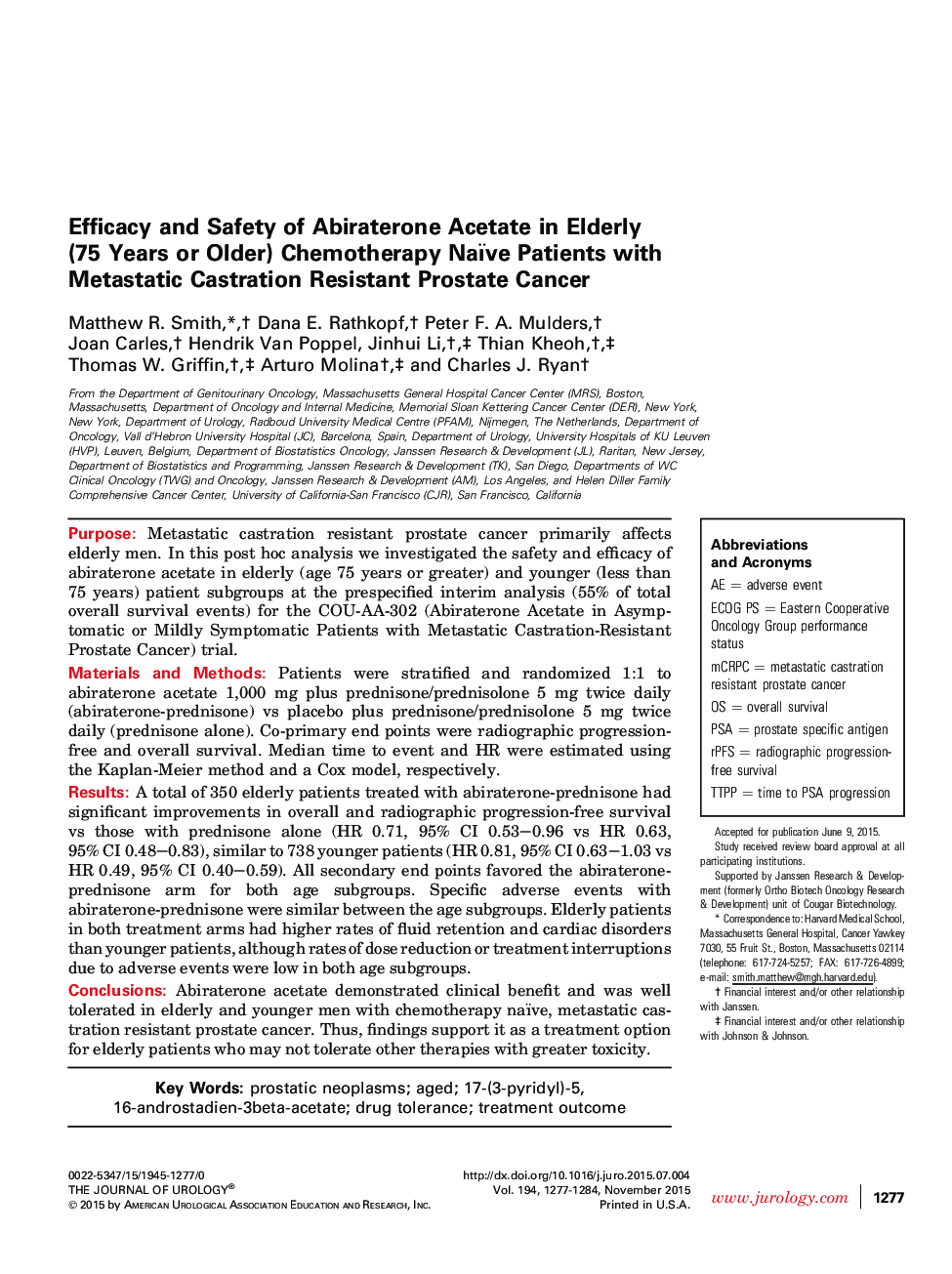| Article ID | Journal | Published Year | Pages | File Type |
|---|---|---|---|---|
| 3860973 | The Journal of Urology | 2015 | 8 Pages |
PurposeMetastatic castration resistant prostate cancer primarily affects elderly men. In this post hoc analysis we investigated the safety and efficacy of abiraterone acetate in elderly (age 75 years or greater) and younger (less than 75 years) patient subgroups at the prespecified interim analysis (55% of total overall survival events) for the COU-AA-302 (Abiraterone Acetate in Asymptomatic or Mildly Symptomatic Patients with Metastatic Castration-Resistant Prostate Cancer) trial.Materials and MethodsPatients were stratified and randomized 1:1 to abiraterone acetate 1,000 mg plus prednisone/prednisolone 5 mg twice daily (abiraterone-prednisone) vs placebo plus prednisone/prednisolone 5 mg twice daily (prednisone alone). Co-primary end points were radiographic progression-free and overall survival. Median time to event and HR were estimated using the Kaplan-Meier method and a Cox model, respectively.ResultsA total of 350 elderly patients treated with abiraterone-prednisone had significant improvements in overall and radiographic progression-free survival vs those with prednisone alone (HR 0.71, 95% CI 0.53–0.96 vs HR 0.63, 95% CI 0.48–0.83), similar to 738 younger patients (HR 0.81, 95% CI 0.63–1.03 vs HR 0.49, 95% CI 0.40–0.59). All secondary end points favored the abiraterone-prednisone arm for both age subgroups. Specific adverse events with abiraterone-prednisone were similar between the age subgroups. Elderly patients in both treatment arms had higher rates of fluid retention and cardiac disorders than younger patients, although rates of dose reduction or treatment interruptions due to adverse events were low in both age subgroups.ConclusionsAbiraterone acetate demonstrated clinical benefit and was well tolerated in elderly and younger men with chemotherapy naïve, metastatic castration resistant prostate cancer. Thus, findings support it as a treatment option for elderly patients who may not tolerate other therapies with greater toxicity.
